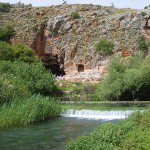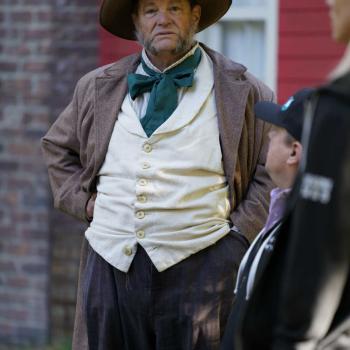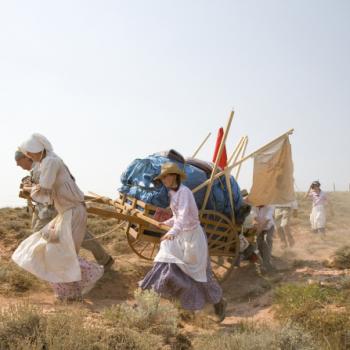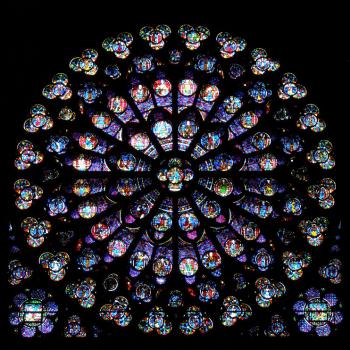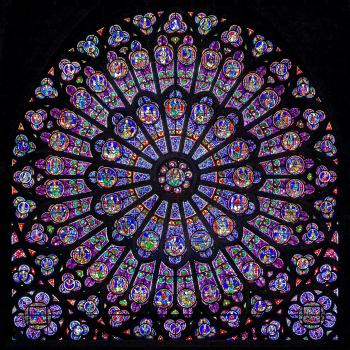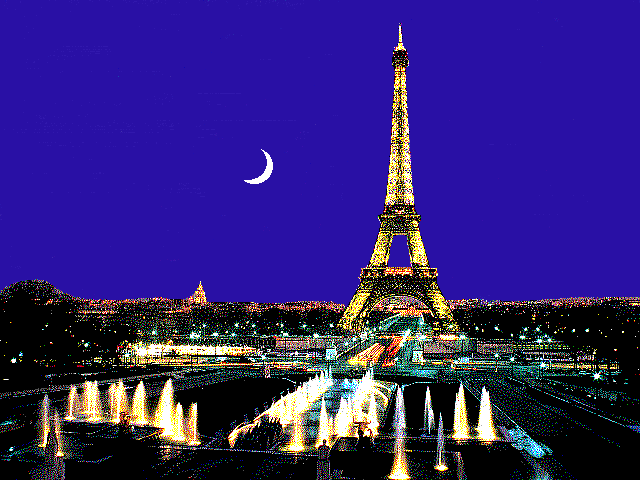
(Wikimedia Commons public domain image)
One of the great moments at the current Summer Olympics in Paris, one of the most impressive displays of heroism, was not an athletic one. It had nothing directly to do with sports, and it won’t — alas! — win a gold medal. It was Céline Dion singing “Hymne à l’amour,” a song that was originally made famous by the great Édith Piaf (1915-1963), at the base of the Eiffel Tower. Coincidentally, as I’m writing this, a television drama is on in the room that has absolutely nothing to do with the Olympics. The characters are in a bar, and in the background is playing Édith Piaf’s signature song “La Vie en rose.”:
But back to Céline Dion, who closed the opening ceremonies, emerging to sing immediately after the lighting of the Olympic cauldron. Ms. Dion is suffering from a rare progressive neurological disorder that sometimes leaves her unable to move and quite unable to sing, and, until these Olympics, she hadn’t performed in public since 2020. But she was magnificent. She was courageous. She was nothing short of heroic. If you haven’t already watched her rendition of “Hymne à l’amour” from the Eiffel Tower, please do. Here are the lyrics in the original French, followed by a reasonably good English translation:
Hymne à l’amour
Le ciel bleu sur nous peut s’effondrerEt la Terre peut bien s’écroulerPeu m’importe si tu m’aimesJe me fous du monde entierTant qu’l’amour innondera mes matinsTant qu’mon corps frémira sous tes mainsPeu m’importe les problèmesMon amour, puisque tu m’aimesJ’irais jusqu’au bout du mondeJe me ferais teindre en blondeSi tu me le demandaisJ’irais décrocher la LuneJ’irais voler la fortuneSi tu me le demandaisJe renierais ma patrieJe renierais mes amisSi tu me le demandaisOn peut bien rire de moiJe ferais n’importe quoiSi tu me le demandaisSi un jour, la vie t’arrache à moiSi tu meurs, que tu sois loin de moiPeu m’importe si tu m’aimesCar moi je mourrais aussiNous aurons pour nous l’éternitéDans le bleu de toute l’immensitéDans le ciel, plus de problèmeMon amour, crois-tu qu’on s’aime?Dieu réunit ceux qui s’aiment
Hymn to Love
The blue sky above us may collapse
And the earth may well crumble
It doesn’t matter to me, if you love me
I don’t care about the whole world
As long as love floods my mornings
As long as my body trembles under your hands
I don’t care about the problems
My love, since you love meI would go to the ends of the earth
I would dye my hair blonde
If you asked me to
I would reach for the moon
I would steal a fortune
If you asked me toI would renounce my homeland
I would renounce my friends
If you asked me to
They can laugh at me
I would do anything
If you asked me toIf one day life tears you away from me
If you die, far from me
It doesn’t matter, if you love me
Because I would die too
We will have eternity for us
In the blue of all immensity
In the sky, no more problems
My love, do you think we love each other?God unites those who love each other
My attention was caught by that last line. One might quibble, I suppose, with the sentiments expressed in the preceding verses. They’re a bit extreme, as expressions of romantic love sometimes are. But Latter-day Saints enthusiastically concur with the last line: “Dieu réunit ceux qui s’aiment.” “God unites those who love each other.” Or, more accurately, “God reunites those who love each other.”
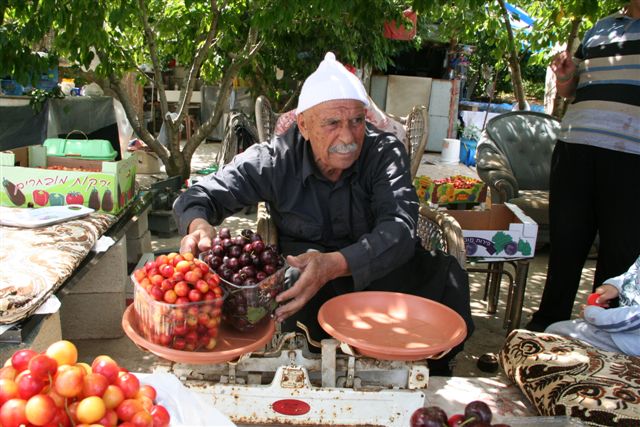
(Wikimedia Commons public domain photo by Palmon Adi)
My wife and I were greatly saddened to learn of this incident. We visit the Golan Heights every time we lead a tour to Israel, typically at least once or twice or even three times a year. And we always pass through the Druze Arab town of Majdal Shams. It’s a very familiar place to us — as well as the setting of the superb and moving Israeli film The Syrian Bride — and I’m very curious as to why the town was apparently targeted.
Some Druze — those of the Mount Carmel region, for example — serve in the Israeli military. But the Druze of the Golan Heights, which are, legally speaking, still generally considered to be occupied Syrian territory, are exempt from military service. And, so far as I’m aware, there is nothing of military significance in Majdal Shams. The town is known, rather, for the excellent apples and cherries that are grown in the orchards around it. (We always stop on Mount Bental, not very far away from Majdal Shams, to look over into Syria. While there, we usually visit with an elderly Druze man, a retired math teacher possessed of a remarkable handlebar mustache, who offers samples of apple slices with local Druze honey to passing tourists and, inevitably, because they’re so good, sells a whole lot of honey. He seems to be about 120 years old, but he’s a real character. May he live forever.)
Perhaps Majdal Shams was targeted because its Druze inhabitants, while ethnically Arab, are not Muslims. In fact, strictly orthodox Muslims of the Wahhabi sort (or their Shi‘a counterparts) would likely consider them schismatics, heretics, and apostates. And that might be enough to make them targets for some Hezbollah types.
Or maybe Majdal Shams wasn’t even a target at all. (I have no idea how accurate the missiles were that hit the town.) Was Majdal Shams merely the chance victim of missiles that were fired indiscriminately, with complete irresponsibility, “Israel-ward”? The Middle East can be a very troubling place.



